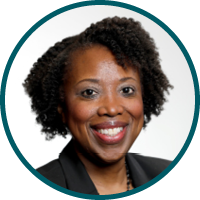SPECIAL RESEARCH FORUM RECAP: Race and racial equity in early childhood development
March 2022

The Crane Center for Early Childhood Research and Policy and the Kirwan Institute for the Study of Race and Ethnicity were thrilled to welcome these two experts for a very special research forum. Each speaker took a deeper look into their work and research on racial equity and early childhood development then took audience questions.
Click the video above to watch the forum.
Centering Race in Social and Emotional Learning as a Leverage for Equity in Early Childhood Education
Early childhood education, from the educators to curricula, often take a color-blind or color-neutral orientation whereby race is not considered an important part of young children’s lives. However, race is a critical component in children’s development and ignoring race undermines their development. Dr. Marisha Humphries discusses the centering of race in social and emotional learning (SEL) as it relates to training school professionals and being integrated into an early childhood curriculum. The transformative SEL framework is utilized in this work as it acknowledges race as a salient element in SEL. It addresses issues of power, privilege, prejudice, discrimination, and social justice in SEL in order to facilitate equitable learning environments.
The Future of Child Opportunity Mapping
Unequal neighborhood environments are an important factor contributing to racial/ethnic inequities in children’s healthy development. But how to best measure neighborhood contexts remains an active area of investigation. Dr. Clemens Noelke reviews different approaches to measuring neighborhood opportunity and compare widely used single-measure indicators (e.g., the neighborhood poverty rate) and composite indices of neighborhood opportunity (e.g., the Child Opportunity Index). He shows that composite indices differ considerably in their construction and predictive validity, and offer some clear advantages compared to single-measure metrics of neighborhood opportunity. He then concludes with an outlook of what the future of neighborhood opportunity maps and their applications might look like.
 Dr. Marisha Humphries, associate professor and licensed clinical psychologist in the Department of Educational Psychology at the University of Illinois Chicago
Dr. Marisha Humphries, associate professor and licensed clinical psychologist in the Department of Educational Psychology at the University of Illinois Chicago
 Dr. Clemens Noelke, research director for the diversitydatakids.org project at the Institute for Child, Youth and Family Policy at Brandeis University
Dr. Clemens Noelke, research director for the diversitydatakids.org project at the Institute for Child, Youth and Family Policy at Brandeis University

